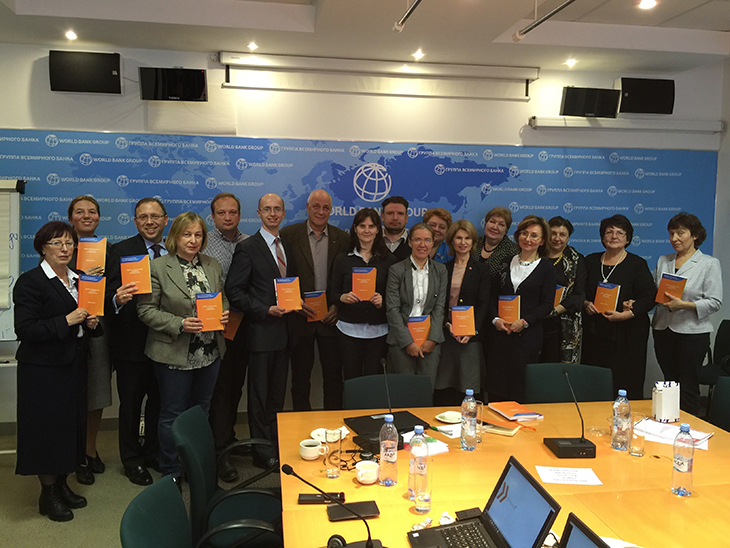A CFRR workshop in Moscow on October 17 highlighted the changing role and requirements of professional accountants and auditors, and the strategic benefit in ensuring they acquire and maintain relevant knowledge, skills, and experience for a successful career in an increasingly global marketplace.
Representatives of leading academic institutions and professional accountancy organizations in Russia joined the workshop to discuss how international accounting standards and broader technological and economic changes have resulted in the need to overhaul accounting education in many countries around the world. The workshop explored the factors driving the reform agenda which are likely to shape the future of accounting education.
The CFRR team explained their focus on enhancing corporate financial reporting practices and supporting reform. Timely, accurate, and dynamic financial information, provided in a user-friendly format, gives insights which can inform decision making and underpin efforts to support innovation, investment, and growth. The team outlined the specialist expertise and range of diagnostic assessments, technical assistance, and knowledge and convening services they offer partner countries.
As a key component of the financial reporting infrastructure, the accountancy profession is central to reform efforts. The workshop addressed the challenge of ensuring that students develop an appropriate range and depth of competence and practical experience before entering the profession, followed by continuing professional development.

To help meet the needs of business and economies in an increasingly interconnected world, the CFRR promotes the application of international benchmarks and standards. In education, the International Accounting Education Standards Board (IAESB) have developed the International Education Standards (IES). These establish requirements for (a) entry to professional accounting education programs, (b) the initial professional development (IPD) of aspiring professional accountants, and (c) continuing professional development (CPD) of professional accountants and are a valuable tool in establishing or updating accounting education programs.
The workshop marked the release of the official and comprehensive Russian translation of the 2017 edition of the IAESB’s Handbook of International Education Pronouncements, a CFRR project to help facilitate better understanding of IES in Russia. Participants were introduced to how IES can be used as a framework to help organizations move forward systematically in pursuing best practices. Discussions focussed on the structure and content of IES, and looked at examples of how jurisdictions with different education systems, legal frameworks, and traditions have complied with the IESs.
